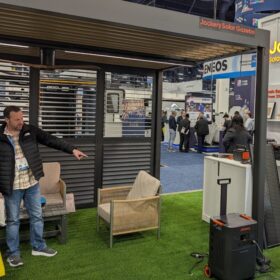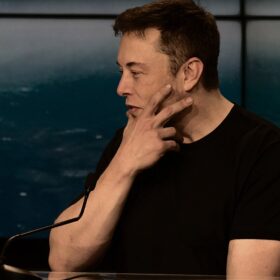Rocket Lab unveils space solar cell with 33.3% efficiency
The new device is based on an inverted metamorphic multi-junction (IMM) cell technology developed by Rocket Lab’s unit Solaero. The cell can be used in applications in the civil, military, and commercial space markets.
Indiana makes it harder for HOAs to ban solar
House Bill 1196 establishes a process for residents of HOAs with existing bylaws against solar installations to petition for a system in a fashion that cannot be denied once a certain level of community support has been attained.
The Solar Tech Check: PV in space, and thin films stride forward
This week has seen NASA announce the completion of a new folding array set to power a mission deep into our solar system, while scientists continue to work on new applications to take such explorations even further from the sun. New measurements also promise routes to higher efficiency in cadmium-telluride PV, and details emerge of one of thinnest solar cells seen so far.
Survey said a majority of homeowners want to go solar, but up-front costs are a deterrent
Rocket Homes found that 66.5% of homeowners surveyed would like to go solar–and they know it saves on the electric bill and increases resale value–but they need financial incentives to handle costs.
PV balance of system provider Shoals opens manufacturing facility, reports Q4 earnings
Shoals manufactures balance of system components for solar, energy storage, and EV charging solutions. The company opened a Tennessee facility and posted record revenues and gross profits in 2021.
Sunrise brief: Industry efforts prevented Florida rooftop solar bill from being potentially disastrous
Also on the rise: Solar advocates oppose Duke’s proposed NEM 2.0 in North Carolina. Indiana enables renewable-ready communities. In Virginia shared solar customers could see fixed charge. Solar+food in ethanol fields could fully power the United States. Federal support needed for US to reach 39% of carbon-free energy sector by 2035. RMI Study suggests charging EVs at work not home, to put daytime solar power to work.
Indiana enables renewable-ready communities
With the passage of SB 411, Indiana communities can opt to voluntarily adopt regulations that will qualify them as a wind- or solar-ready community. The standards are expected to significantly cut project development time, lower costs, and create thousands of jobs in the clean energy industries.
Duke’s proposed Net Metering 2.0 rule change in North Carolina meets stiff opposition
Add North Carolina to the list of states considering changes to net metering rules, as Duke Energy proposes shifting costs to solar customers.
Without federal support, US would only reach 39% of carbon-free energy sector by 2035, said Wood Mackenzie
Without important federal measures like the Build Back Better reconciliation bill, the investment tax credit long-term extension, and US manufacturing support, Wood Mackenzie and the Solar Energy Industries Association (SEIA) said the US will fall short of goals.
Renewable advocates urge regulators to reject fixed charge for shared solar program
The Virginia State Corporation Commission’s Hearing Examiner has proposed a requirement for residential shared solar customers to pay a $55 minimum bill each month, which opponents claim will dramatically limit program participation.















